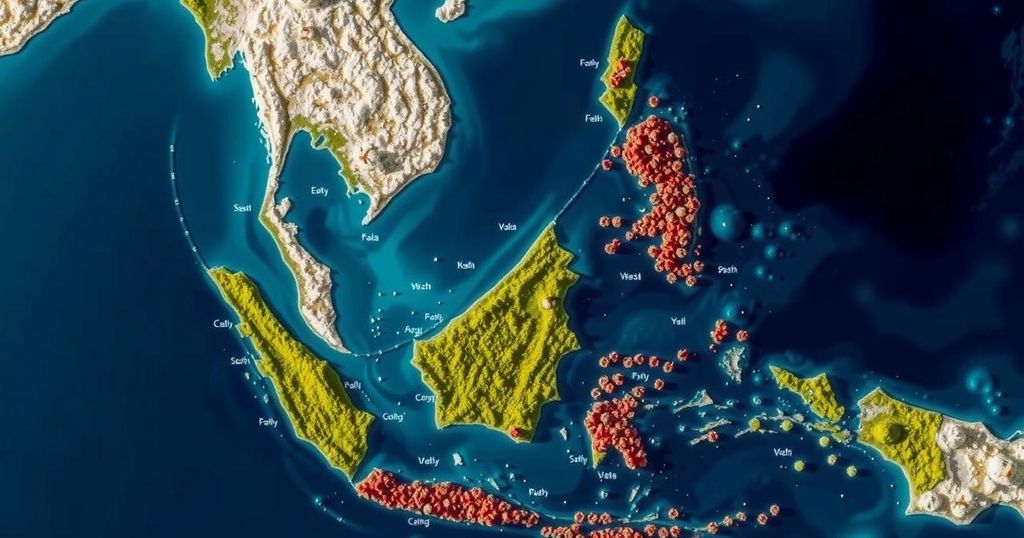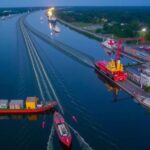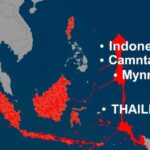Politics
ASEAN, ASIA, CHINA, DAT, DATA ANALYSIS, EXPORTS, FOREIGN INVESTMENT, HONG LEONG, HU, HUN MANET, IN, INFRASTRUCTURE DEVELOPMENT, INVESTMENTS, JAKARTA POST, LAO NATIONAL CHAMBER OF COMMERCE AND INDUSTRY, MEXICO, MINISTRY OF INFORMATION, CULTURE AND TOURISM, NORTH AMERICA, PEACE PALACE, PRAMONO ANUNG, SUPPLY CHAIN, THAILAND, UNITED NATIONS HIGH COMMISSIONER FOR REFUGEES
Nia Simpson
Southeast Asia Developments: Key News from Indonesia, Cambodia, Laos, Myanmar, Vietnam, and Thailand on November 29, 2024
On November 29, 2024, notable developments occurred in Southeast Asia, including Jakarta’s gubernatorial race, improved press freedom in Cambodia, agreements on alcohol standards in Laos, education celebrations in Myanmar, record rice exports from Vietnam, and police action against fraudulent activities in Thailand. These events highlight the ongoing political and economic evolution across the region.
On November 29, 2024, significant developments unfolded across Southeast Asia, particularly in Indonesia, Cambodia, Laos, Myanmar, Vietnam, and Thailand. In Indonesia, Jakarta’s gubernatorial candidate Pramono Anung declared victory despite official results not yet being finalized. Meanwhile, in Cambodia, discussions regarding investment policies took place between Hong Leong’s chairman and Prime Minister Hun Manet, alongside a report highlighting improvements in press freedom. In Laos, agreements on alcohol standards were signed with China, and plans were initiated to enhance tourism infrastructure. Myanmar marked a century of economic education while working collaboratively with UNHCR to facilitate humanitarian efforts. Notably, Vietnam achieved record rice exports of over eight million tons, while Thailand’s police disrupted a fraudulent operation, reflecting broader economic trends despite challenges in the automotive sector.
This report illustrates the dynamic political and economic landscape in these Southeast Asian nations. Each country is navigating its challenges and opportunities, reflecting diverse sectors from governance to tourism, investment, and trade. By addressing these issues, nations in the region are positioning themselves for future growth and stabilization, indicating a unified regional approach to development amidst various challenges.
The Southeast Asian region is witnessing ongoing developments that reflect both political and economic changes. Each country’s situation varies significantly; Indonesia faces electoral uncertainties, while Cambodia is aligning investment attractors. Laos aims to improve tourism while establishing quality control standards for alcohol. Myanmar is addressing humanitarian needs in collaboration with international agencies. Vietnam’s agricultural sector shows growth in exports, particularly rice, which is crucial for its economy, while Thailand grapples with challenges in its lucrative automotive sector. Understanding these nations’ efforts and collaborative strategies provides insight into the region’s future potential.
In conclusion, the news from Southeast Asia reflects a region in flux, with Indonesia’s election uncertainties, Cambodia’s investment discussions, Laos’ tourism enhancements, Myanmar’s educational milestones and humanitarian efforts, Vietnam’s agricultural successes, and Thailand’s law enforcement accomplishments. These events underscore the vibrant political and economic dynamics that characterize the region, pointing towards a concerted effort for growth and improvement in various sectors.
Original Source: www.bernama.com








Post Comment